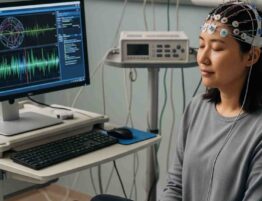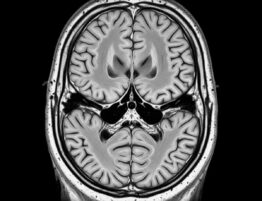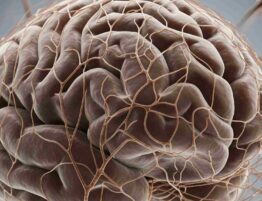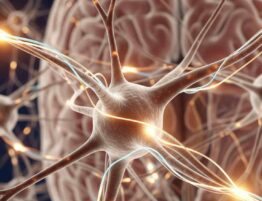There are many chronic autoimmune diseases of the central nervous system (CNS). They usually involve several parts of the brain and spinal cord. Multiple sclerosis (MS) is generally considered one of the most common diseases. The disease develops in people of different ages. Such a condition is incurable. However, it is possible to ease manifestations and stop progression. Symptoms significantly impair quality of life. Early diagnosis of pathology is essential. Unfortunately, it is difficult to detect multiple sclerosis during the first attack in its debut. If you seek help late, there are usually many violations.
Some nerve functions are almost impossible to restore. You should learn about the symptoms of multiple sclerosis. It is pivotal to understand how the MS manifests, too. If you have a family member with multiple sclerosis, you should take preventive measures. It is essential to know when to see a doctor. If you miss time, your quality of life will deteriorate significantly. MS will negatively affect all its areas. Let’s explore the symptoms and methods of preventing the development of MS.
What is multiple sclerosis?
This chronic autoimmune disorder has been known since the 19th century. It is always accompanied by inflammation of the CNS. Damage occurs to the brain, spinal cord, and optic nerves. The body’s immune system mistakenly attacks the myelin sheath in MS. This protective coating surrounds the nerve fibers. It usually leads to disruptions in nerve signaling. This damage can result in many symptoms. Among them are:
- fatigue;
- muscle weakness;
- numbness;
- tingling sensations.
- difficulty walking;
- vision problems;
- cognitive impairment.
The exact cause of multiple sclerosis remains unclear. It may be a combination of genetic, environmental, and immunological factors. MS is typically diagnosed based on clinical signs, medical history, and neurological examinations. Also, MRI scans are pivotal. There is no cure for this severe illness. Various treatment strategies are available to manage symptoms. They also can slow disease progression. Also, they help improve the quality of life for individuals with this condition.
Causes and mechanisms of development of MS
Understanding the particularities of MS development is crucial. It helps with advancing treatments and improving outcomes. Here’s an exploration of the critical factors:
- Autoimmune Response: The immune system mistakenly attacks the myelin sheath. It surrounds nerve fibers in the central nervous system (CNS).
- Genetic Predisposition: This aspect plays a role in susceptibility to MS. Specific genes increase the risk of developing the condition.
- Environmental Triggers: Infections, smoking, and low vitamin D levels may cause the onset of MS. It is especially possible with individuals with a genetic predisposition.
- Demyelination: This is the hallmark feature of MS. The immune system’s attack on the myelin sheath leads to its breakdown. It disrupts nerve signal transmission.
- Types of multiple sclerosis: This condition can manifest in various forms. It is relapsing-remitting (RRMS) and secondary progressive (SPMS). Also, among types are primary progressive (PPMS) and progressive-relapsing (PRMS). Each presents with unique patterns of disease progression and management challenges.
Understanding these causes and mechanisms is essential. It helps for developing targeted therapies and interventions.
Main signs and symptoms of MS
Recognizing the prominent MS signs is crucial. It helps with early detection and effective management of the condition. Understanding the main symptoms of multiple sclerosis is essential. So individuals and healthcare professionals can work together. They may provide appropriate care and support for those living with MS.
Main symptoms of MS
There is a prominent clinical presentation of this condition. Individuals always experience the primary signs. Among them are:
- Fatigue: Overwhelming exhaustion that is not relieved by rest.
- Muscle Weakness: Difficulty moving the limbs leads to a lack of coordination.
- Numbness or Tingling Sensations: Feelings of pins and needles or numbness. It is typically in the extremities.
- Vision Problems: Blurred or double vision, eye pain, or involuntary eye movements.
- Difficulty Walking: Problems with balance, coordination, and walking. They appear because of muscle weakness or spasticity.
These multiple sclerosis signs can vary in severity. They may occur over time. It’s essential for individuals experiencing these clinical manifestations.
Manifestations of MS and their impact on everyday life
There are some manifestations of MS. They significantly impact everyday life. Some signs are:
- Cognitive Changes: These symptoms can affect work, social interactions, and daily tasks. Challenges in processing information may decrease productivity.
- Bladder and Bowel Dysfunction: Difficulty controlling the movements of these organs causes embarrassment. This usually leads to social isolation.
- Pain: Individuals may experience chronic neuropathic pain and muscle spasms. They may interfere with sleep, mobility, and overall comfort.
- Emotional Changes: Patients can suffer from mood swings, depression, and anxiety. They can impact relationships and work performance.
These multiple sclerosis symptoms can significantly impact daily life, requiring adaptations. Also, they support and manage strategies. They help to maintain quality of life and functioning. Regular medical care and rehabilitation are pivotal aspects. Also, patients need support from healthcare professionals and loved ones. It’ll help address these challenges and maximize independence and well-being.
Early detection of MS symptoms
Multiple sclerosis early diagnosis is crucial for prompt diagnosis and treatment. Here are some common early manifestations to watch for:
| Symptom | Description |
| Vision Problems | Blurred vision, eye pain, or difficulty focusing. |
| Numbness or Tingling | Sensations of pins and needles or numbness. It is often in the limbs. |
| Fatigue | Persistent exhaustion that isn’t relieved by rest. |
| Muscle Weakness | Difficulty moving limbs or weakened coordination. |
| Balance Issues | Problems with balance and coordination. It leads to frequent falls. |
| Cognitive Changes | Memory problems, difficulty concentrating, or mood swings. |
| Bladder or Bowel Dysfunction | Difficulty controlling urination or bowel movements. |
If experiencing any of these signs, it’s essential to consult a healthcare professional. He’ll provide proper evaluation and management. Early detection can lead to timely MS diagnosis. Also, it initiates appropriate treatment. An adequate cure plan will help manage the condition effectively. Adopting a healthy lifestyle includes a balanced multiple sclerosis diet. It may help alleviate symptoms and support overall well-being.
When to see a doctor
Individuals with MS must know when to see a healthcare professional. Also, this is pivotal for those seeking guidance on managing the condition. Here are some scenarios that warrant a medical consultation:
- New or Worsening: Any signs should prompt a doctor’s visit. Among them are vision problems, numbness, weakness, or balance issues.
- Concerns About Nutrition: Patients must follow a multiple sclerosis diet. It focuses on whole foods, emphasizing fruits, vegetables, lean proteins, and healthy fats. Such a diet may limit processed foods, saturated fats, and sugars. It’ll help to support overall health and symptom management.
- Persistent: Symptoms that persist for an extended period without improvement or resolution.
- Concerning: These signs significantly impact daily activities, quality of life, or emotional well-being.
- Family History: A history of MS or autoimmune diseases may increase the risk and warrant proactive monitoring.
- Request for Diagnosis: Individuals seeking multiple sclerosis must consult a doctor. He’ll provide evaluation and testing.
- Treatment Options: These include medications, therapies, and lifestyle modifications. It is pivotal for managing MS symptoms effectively.
You should contact a doctor when you notice the first signs of the disease. In advanced stages, relieving them and stopping their progression is extremely difficult. Don’t hesitate. Timely diagnosis of multiple sclerosis is the main point.













Please, leave your review
Write a comment: